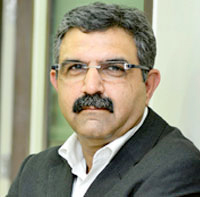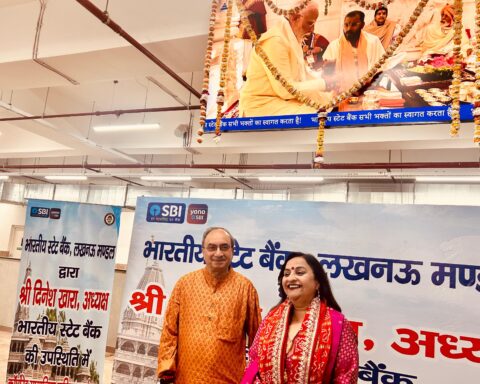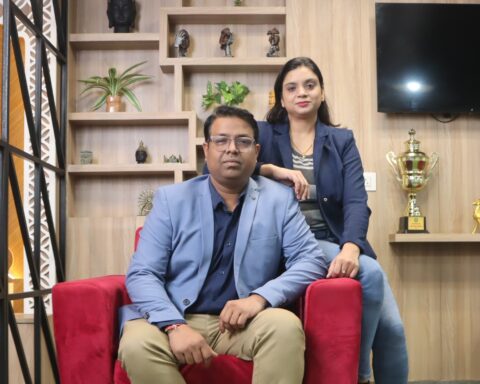
Before the merger with Hitachi Systems, the cash crunch in his company, Micro Clinic , was making business very tough on Tarun Seth, Managing Director, Hitachi Systems Micro Clinic . The merger has eased the situation, helping him grow the company in terms of both revenue and markets. Tarun-Seth-Managing-Director-Hitachi-Systems-Micro-Clinic- Tarun shares with the company’s vision, plans and focus after the merger with Hitachi Systems.
1.What was your vision while merging with Hitachi Systems? What advantages did you receive after the merger?
It’s everybody’s dream to partner with a large business house and Hitachi is one of the top 29 companies globally. With Hitachi joining us, we are confident of growing much bigger as a System Integrator. This is our first entrepreneurial venture, so there were bound to be challenges. But this merger turned the challenges we were facing into advantages. We faced three big ones- one of them was money. We could not afford to grow after a certain level because the paucity of funds always limited us, and we faced this for the last three years, and after the merger it was easier for us. . It was also difficult to hire the large pool of people, because they everyone prefers to work with MNCs first, and then to work with partners like us. The third challenge that we were facing alone, and merging resolved it for us – is the level of partnership which you can get. Also, the customer viewpoint about your organization changes the moment you become a larger system integrator. There are great benefits. As I said there were three problems – people, money and the reach. With partnering with Hitachi, all three problems were rectified.
2.How has been the work culture after the merger with Hitachi?
Hitachi is a great company to work with. Their work culture is human – they value people and they look after them. That’s the biggest culture difference we have seen between what we were and where we are today.
3.With mergers come big responsibilities. How did you tackle with the challenges that had come immediately after the merger?
They were good challenges and were a great learning process for us too. We are following all the policies and principles of Hitachi, we are also shifting to SA. Our people benefits have much higher than what they were getting, there’s lot of training, lot of personal handling. So, I feel that these were the parameters which we had to fulfill and make sure that they are implemented within the time frame. Most of them have been implemented, and by 31st all of them will be implemented.
4.What were the major changes you have observed in your business after the merger?
It is only six months old, so till now we were doing business as usual, but it’s going to change in next three months. As you know Hitachi is the top SAP partner across the globe, they have close to 2000 developers operating in Japan and US. So we are going to start the SAP practice in a big way in this country. Hitachi is the only company in the world which has HANA practice where all the four verticals of HANA have the trained people and we are going to start with SEZ in India. We are bringing in our managed services portfolio as Hitachi is leader in managed services as they have their own IP in the form of SSS and JP1. We will also have a NOC very soon. Similarly we will have Security as a Service practice which is coming up in Pune where we are going to give SaaS experience to our customer. These are the benefits that Hitachi is transferring to India and we believe that by 31st March 2015 , all of these will be implemented.
5.What value addition does this merger gave to Micro Clinic individually?
It’s a big value addition. We were perceived as one of the 4000 or 5000 SI partners, today we feel there’s no competition because Wipro and HCL are not operating anymore in entire Systems Integration space. We feel that we have gone to the next level of Systems Integration.
6.What is the present focus of the company?
We continue with our focus as Micro Clinic, on infrastructure, security, professional services with Websense and McAfee in India and South East Asia. We are very strong in services as SI partner (as Micro Clinic) and also network business. But this will all change because next year we are going to have NOC and SOC so we will be offering more managed services and a global services platform to our customers in India. We were not offering application earlier, so we are starting SAP and Oracle practices on manufacturing as a vertical, largely because these are the strengths of Hitachi in Japan which we are bringing now in to India.
7.What are the potential verticals for your business?
Our strength is systems integration. Till now we did not have any big clients, but after acquiring the name of Hitachi, many big brands have approached us, and we shall certainly work with them. We are very strong in BFSI, IT/ITES, manufacturing and these are the verticals for which we will bringing in applications of Oracle and SAP with support from Hitachi. In our business, vertical wise, BFSI contributes 30%, IT/ITES contributes 35% and the balance 35% is a mixture of government, SMB and other verticals.
8.What is your go to market strategy? Do you have any particular approach for government proposals?
Our Go to market strategy is simple. We always wanted to offer end to end solutions, but earlier we could not offer the application services was missing. Now with the application portion in place we feel we have an edge over our competitors. Government is one business which is on the upswing. We have a separate sales team for government projects, which understands government business processes. We are going to participate a lot more in Government proposals, and are confident that in the near future, the percentage of our business from Government contracts will be on the rise. That is largely because Hitachi is committed to the Indian government and they want to do large projects which the present government wants to bring.
9.In terms of geography, what are your best locations? Where is the growth coming from?
At present we are operating in 16 cities. In addition, we are planning for offices in Dubai and South Africa. Hitachi is already present in a big way in South East Asia and has just acquired three large companies in the region. So, together we are trying to bring out a solution which will help not only customers in India but across the globe. Growth will come from the large new customers which we are adding. Another area of growth for us is the farming of existing customers for our new applications offerings as well. 10. What are your short term and long term goals? Short term goal is to be better at what we were doing earlier. Long term goal is to create differentiators in the market place that educate the market about the value Hitachi has brought to us, and how they can benefit from it too. So, customers can now experience global practices and service levels, which may not have been there earlier. 11. How has your journey been so far? It’s a great journey, from a very small partner we become a large company. We have just sent 23 people from our team to Japan for a Bowling event for the Hitachi Systems New Year. They have realized that they are working with very large organization so it helps the people to stick to the organization for a longer duration. Besides, we are now free to grow, since money is not a problem today.





